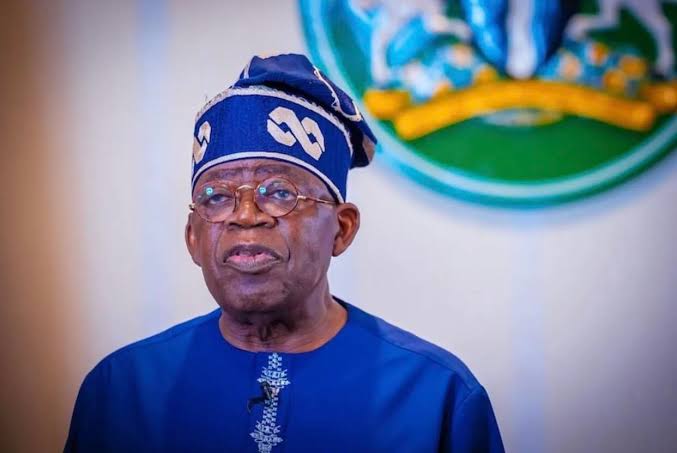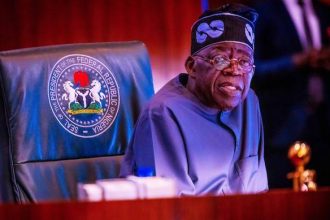President Bola Ahmed Tinubu will depart Abuja for Kaduna, the capital of Kaduna State, in what is officially described as a one-day visit. While the trip has a personal and social undertone, it is also steeped in political significance, underscoring the intricate relationship between Nigeria’s political elite, symbolic gestures of loyalty, and regional power dynamics.
Linking Political Families: The Wedding
The first leg of Tinubu’s visit will take him to the wedding ceremony between Nasirudeen Yari and Safiyya Shehu Idris. Nasirudeen is the son of Senator Abdul’aziz Yari, a former governor of Zamfara State and an influential figure across the North-West. Safiyya comes from the Idris family, a respected household with deep ties to Kaduna.
In Nigerian political culture, weddings often transcend personal unions; they serve as platforms for elite networking, political endorsements, and demonstrations of solidarity. The attendance of the President at this wedding sends a strong message about Tinubu’s alignment with Abdul’aziz Yari and the importance of Zamfara in his broader North-West political strategy.
Abdul’aziz Yari: A Political Force
To appreciate the significance of Tinubu’s attendance, consider the political trajectory of Abdul’aziz Yari. Yari served two terms as Governor of Zamfara State (2011–2019) and has been a pivotal mobiliser for the All Progressives Congress (APC) in the North-West. His reach extends beyond Zamfara, and despite controversies and probes that followed his tenure, he remains a key player in regional politics.
Tinubu’s presence at his son’s wedding can be read both as a personal gesture of friendship and a political endorsement an implicit reminder that alliances in the North-West remain central to the administration’s political calculus.
The Bride’s Family and Kaduna’s Political Significance
Safiyya Shehu Idris’s family roots in Kaduna amplify the ceremony’s local resonance. Kaduna has historically functioned as a political hub for Northern Nigeria a space where traditional authority meets contemporary politics. By attending this wedding, Tinubu reaffirms his visibility in a region where symbolic gestures carry considerable weight.
Courtesy Visit to Aisha Buhari: Respect and Reassurance
Perhaps the most symbolically loaded aspect of the President’s itinerary is the planned courtesy call to Aisha Buhari. The widow of former President Muhammadu Buhari remains a visible and sometimes vocal figure in national affairs. President Tinubu’s decision to pay a personal visit to the Buhari family is notable for several reasons:
- Recognition of legacy: It acknowledges the continued emotional and political resonance of Buhari’s presidency among many Northerners.
- Consolidation of goodwill: The move reassures Buhari loyalists that their former leader’s family retains respect at the highest level.
- Symbolic unity: It signals a deliberate attempt to bind together factions within the APC through gestures of courtesy and respect.
Buhari’s Legacy and the Politics of Memory
In Nigeria, former leaders remain powerful in public memory. Muhammadu Buhari’s administration left mixed but enduring legacies: for some, he represents moral authority and Northern pride; for others, his tenure raised questions about security and the economy. Aisha Buhari has herself been politically visible, and Tinubu’s personal visit is an exercise in political memory management — respecting the past while steering the present.
The Political Calculus: Why Kaduna, Why Now?
Observers view the trip within the context of APC dynamics and the longer-term electoral horizon. Several calculations likely informed the visit:
- Strengthening North-West alliances: The region remains an APC stronghold. Publicly aligning with figures like Abdul’aziz Yari helps consolidate support.
- Reinforcing Buhari’s base: Showing solidarity with Buhari’s family helps calm nerves among core supporters amid policy reforms.
- Balancing policy with optics: With the administration implementing tough economic reforms, symbolic gestures remind voters that their leaders remain connected to cultural and regional values.
Social Events as Political Arenas
Weddings, funerals, and naming ceremonies in Nigeria often function as informal political summits. They provide discreet venues for deal-making, alliance-building, and public signalling. Tinubu’s attendance illustrates how the personal and political remain intertwined an enduring characteristic of Nigerian public life.
“Showing up at the right places matters,” said a political analyst. “Presence is a form of politics in itself, especially in a country where relationships often outweigh policy pronouncements.”
Public Reactions and Expectations
Reactions to the visit have been mixed. Supporters praise the gesture as respectful and unifying. Critics argue that symbolic trips should not distract from pressing national issues such as inflation, insecurity, and service delivery. Yet many analysts note that optics and policy often travel together presence and persuasion are two sides of the same political coin.
Implications for the APC and the 2027 Landscape
While the 2027 general elections are still some years away, political actors are already mindful of coalition dynamics. Tinubu’s Kaduna visit is a reminder that building and maintaining coalitions requires continuous attention, attending social events, honouring former leaders, and visibly supporting regional allies are part of that long-term work.
President Tinubu’s one-day trip to Kaduna on September 19 will likely be remembered less for its itinerary than for its symbolism. By standing alongside Abdul’aziz Yari and paying respects to Aisha Buhari, Tinubu is sending a layered message: he values alliances, respects political memory, and recognises the cultural significance of personal gestures in Nigerian politics.
As the President returns to Abuja the same day, Nigerians will weigh not only the event itself but the underlying message, that politics in Nigeria remains a human affair where perception, presence, and relationships are central to governance.












